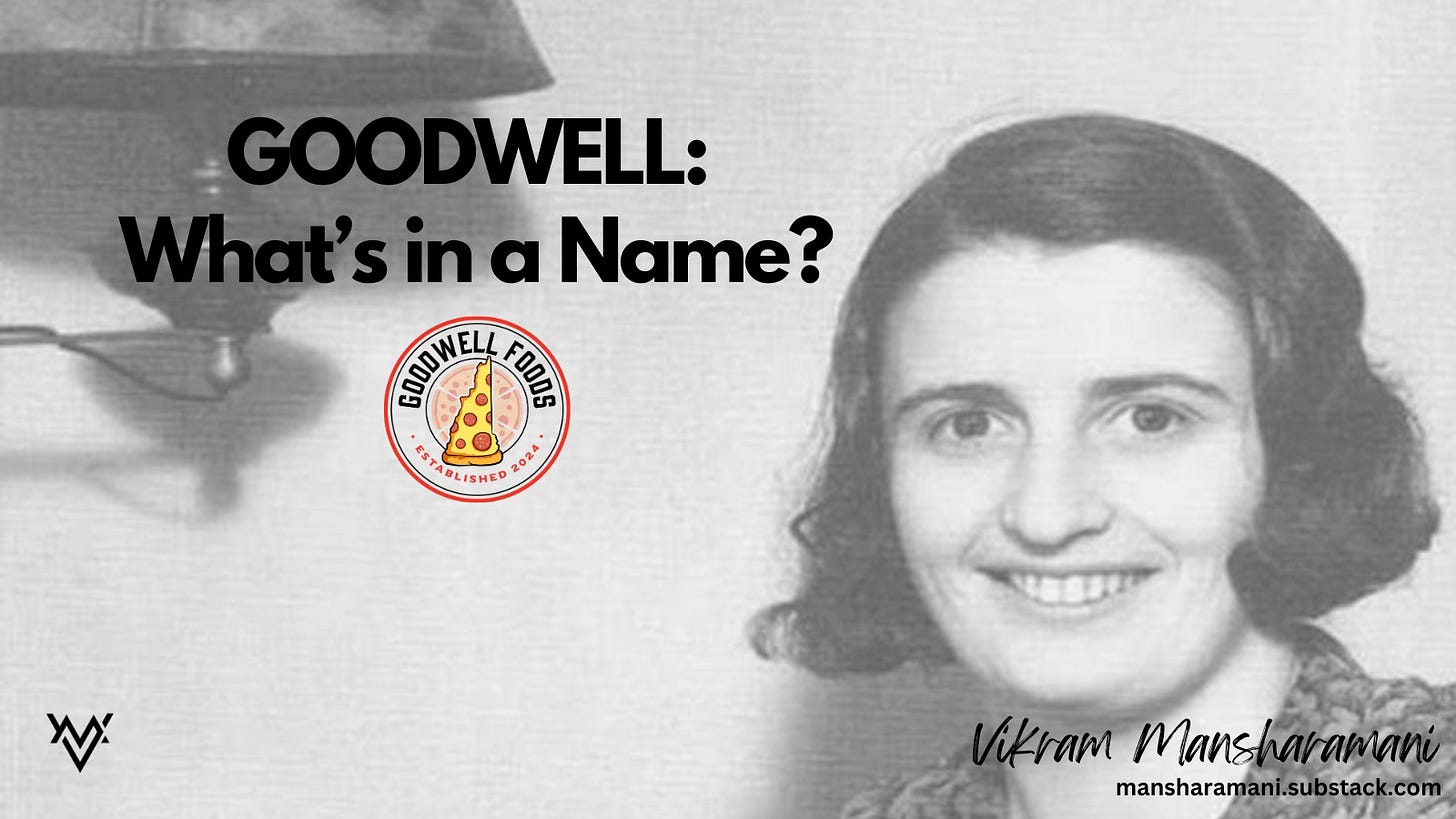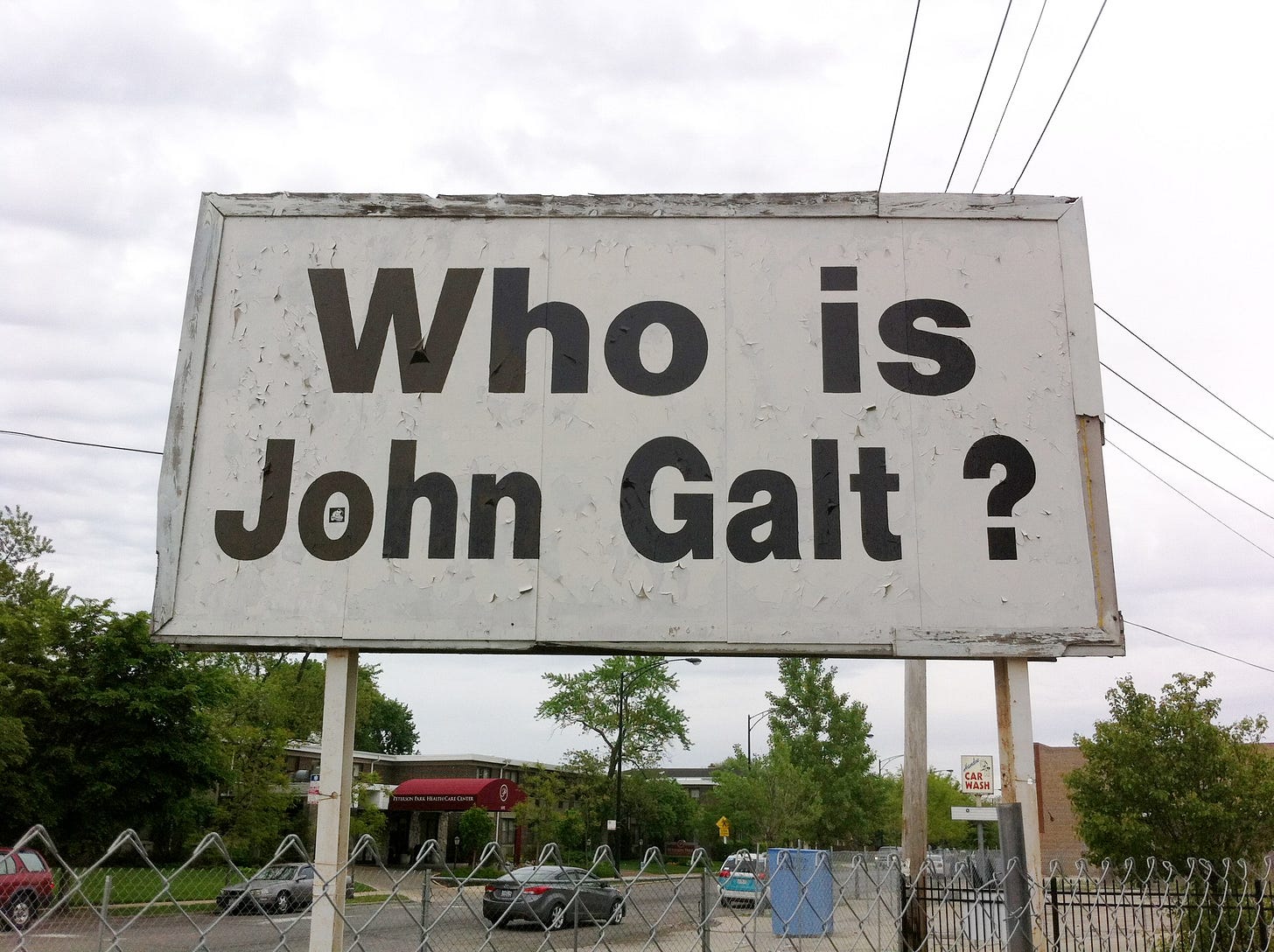GOODWELL: What's in a Name?
Entrepreneurs “do-good” by “doing-well”
What’s my favorite book? That’s a question I am often asked, and it’s become harder to answer these past few years. The titles and authors I’ve named for decades come readily to mind, but I’ve started to wonder if those answers are still true. It’s been years since I’ve read some of them, and while they appealed to the teenage or undergraduate version of me, I wondered if they still would now that I am an adult. I have a friend – big Hemingway fan - who recently told me that he never cared for The Old Man and the Sea when he read it in high school, but when he re-read it in middle-age, it landed a lot differently.
And so last summer, at the active encouragement of my good friend Worth Wray, I reread Atlas Shrugged. I rediscovered Objectivism and quickly became intellectually obsessed with Ayn Rand’s thinking. I reread the books of my youth, tearing through Anthem and The Virtues of Selfishness, We the Living, and Capitalism. Her insights into class warfare, tyranny, freedom, and the distinction between producers and looters now had an urgent relevance that I didn’t recall in my college reading of her work.
In much of Western culture, the capitalist is often portrayed as a villain, exploiting workers for his personal gain. For Rand, the businessman who created and built and hired was the hero of the story; production was the greatest virtue. And Rand saw business as a unique bulwark against tyranny. She wrote that while other professions exist in totalitarian societies – politicians, farmers, teachers, scientists, soldiers – businessmen do not. Businessmen are what distinguish capitalist from statist societies, and Rand saw them as the ultimate symbol of freedom. One of her key messages was that there was a massive difference between businessmen who produce and bureaucrats who live off the production of others.
While other professions exist in totalitarian societies – politicians, farmers, teachers, scientists, soldiers – businessmen do not. Businessmen are what distinguish capitalist from statist societies…
Rediscovering Rand was one of the reasons I decided to start a business last fall, something I wrote about in my last post. I had written and thought and taught about business. I had advised and served on the boards of some of the largest companies in the world. I had even started a few small businesses, usually focused on ideas and the abstract (I had often referred to myself as an “entrepreneur of ideas”). It was time to start and run a business that created something tangible and concrete, while also creating jobs.
And hence I formed Goodwell Foods, a private label frozen pizza manufacturer located in Pittsfield, NH that now employs several dozen people. We went from standing still to sprinting at full speed in a matter of days. And with a focus on production embedded throughout our team, our output and productivity grow almost every day.
That’s the key word: productivity. I feel productive. It feels good to produce, to lead a team united in purpose, to create value and put pizza on a store’s shelf and ultimately on a family’s table. Throughout my life I’ve come to know brilliant entrepreneurs and businesspeople who created lots of jobs and wealth. I’ve seen the positive impact they had on the lives of thousands of people. That’s why Rand’s writing is landing a little different in middle-age than it did in my youth.
For Rand, business was an intellectual and spiritual pursuit. She saw the businessman as, “…a great liberator who, in the short span of a century and a half, has released men from bondage to their physical needs, has released them from the terrible drudgery of an eighteen-hour workday of manual labor for their barest subsistence, has released them from famines, from pestilences, from the stagnant hopelessness and terror in which most of mankind had lived in all of the pre-capitalist centuries – and in which most of it still lives, in non-capitalist countries.”
I’ve always believed in the value of service. For me, starting a new company isn’t just about dollars and cents, although we hope to do well. It’s also about doing good. I have taught and guided students; I have been active in politics, trying to effect positive change; I have been an advocate for those with special needs; I’ve taught adaptive skiing to disabled vets and kids. I am proud of the work that I have done in my community but have also realized I can do even more good in business.
Businesspeople and entrepreneurs – far from the greedy, self-interested stereotype – are truly the ones providing a community service. They actually can make the world a better place. Capitalism has, after all, pulled more people from poverty than any non-profit organization ever has (or will).
And hence, the name, Goodwell Foods. We are going to do both good and well.
VIKRAM MANSHARAMANI is an entrepreneur, consultant, scholar, neighbor, husband, father, volunteer, and professional generalist who thinks in multiple-dimensions and looks beyond the short-term. Self-taught to think around corners and connect original dots, he spends his time speaking with global leaders in business, government, academia, and journalism. He’s currently the Chairman and CEO of Goodwell Foods, a manufacturer of private label frozen pizza. LinkedIn has twice listed him as its #1 Top Voice in Money & Finance, and Worth profiled him as one of the 100 Most Powerful People in Global Finance. Vikram earned a PhD From MIT, has taught at Yale and Harvard, and is the author of three books, The Making of a Generalist: An Independent Thinker Finds Unconventional Success in an Uncertain World, Think for Yourself: Restoring Common Sense in an Age of Experts and Artificial Intelligence and Boombustology: Spotting Financial Bubbles Before They Burst. Vikram lives in Lincoln, New Hampshire with his wife and two children, where they can usually be found hiking or skiing.





